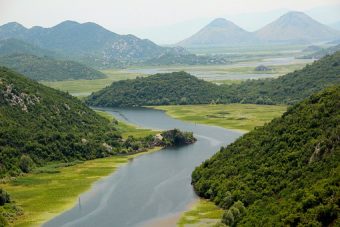
People have always inhabited the banks of rivers that are vital to our existence, but it seems that human intervention in the last three decades is slowly taking its toll.
Experts from Inha University in South Korea found that in the past 35 years, at least 100,000 hectares of land around estuaries worldwide have been converted to urban or agricultural land. Their research was published in the scientific journal Earth’s Future.
According to scientists, the construction of dams and land reclamation at estuaries have far-reaching consequences for aquatic and terrestrial ecosystems. They reduce coastal protection from storms, affect water quality, and lead to flooding.
The study found that land reclamation, including draining or adding sediment for construction purposes, accounted for 20 per cent of estuarine area loss. At the same time, humans globally altered 44 per cent of estuaries with dams and/or reclamation.
The reclamation of the Qiantang River Estuary in China has already taken its toll, causing severe flooding in nearby cities. It has cost the country an average of 4 billion US dollars per year over the past 50 years.
More:
- RECORD REDUCTION OF 2023 ETS EMISSIONS DUE LARGELY TO BOOST IN RENEWABLE ENERGY
- HOW AGRICULTURE ENDANGERED THE WORLD’S MOST BIODIVERSE SAVANNAH
- DEFORESTATION CONTRIBUTES TO INCREASED MERCURY POLLUTION – AFFORESTATION REDUCES IT
Wealthy countries are trying to recover
Estuaries are places where fresh river water mixes with salty ocean water, and as such, they are unique ecosystems. However, it seems that we have put more emphasis on estuaries as transport hubs and suitable places for urbanization than on their importance as habitats for wild species; in the past few decades, we have forgotten to preserve their environmental health. This is why many developed countries, such as the Netherlands and Germany, are now trying to restore their degraded estuaries by removing dams and restoring vital ecosystem functions.
These countries have already lost large areas of their estuaries and, therefore, can serve as a kind of warning to developing countries that, in addition to economic benefits, when modifying their estuaries, they should also consider environmental protection, said Guan-hong Lee, a geoscientist from Inha University in South Korea who led the study.



